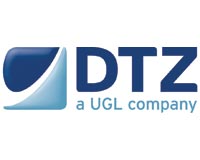A new era is dawning for DTZ – again. The 230-year-old property services firm was this week secured by a three-strong private equity consortium in a A$1.2bn (£675m) binding offer.
The TPG Capital, PAG Asia Capital and Ontario Teachers Pension Plan consortium is scheduled to complete the cash deal in September, bringing to an end three years of ownership by Australian taskmasters UGL – the final coda to a gruelling six-year turnaround. But what does the future hold for the firm under a return-driven private equity owner?
Rather than cost-cutting and asset stripping, it is expansion that is expected to be a priority for the firm’s new owners. With £116bn of assets under management between the trio of firms, further acquisitions are expected. DTZ has a long-held ambition to be a top-three global firm and internally it is felt that its new deep-pocketed owners are the ones to get it there.
The global composition of the US/Hong Kong/Canadian consortium offers no clue as to geographic expansion. This suits a firm such as DTZ, which regards itself as “internationally agnostic”, but a big US acquisition – something that will make CBRE and JLL sit up and take notice – is thought to be at the top of the wish list.
DTZ has already been through a period of substantial growth since UGL bought the firm for £77.5m in a prepack administration in December 2011. At that point revenue was £341.3m and it reported a loss before tax and exceptional items of £600,000. In the year to 30 June 2013, DTZ’s revenue rose by 21% to A$1.9bn, with EBIT up by 19% to A$113.4m.
However, it is not to be overlooked that during its ownership UGL boosted DTZ by consolidating a number of its advisory businesses and added facilities management to its service lines.
And DTZ is still some way behind CBRE’s 2013-14 global turnover of $7.2bn (£4.4bn), which generated net income of $474m, and JLL’s turnover of $4bn, with net income of $285m.
TPG or at least its precursor, Blum Capital Partners, has form when it comes to the take-private of a high-profile property services firm. In July 2001 the private equity firm led an $800m buyout of the then Los Angeles-based CB Richard Ellis, which it swiftly took private. Two years later it pushed CB Richard Ellis to the top of the global rankings with the purchase of New York heavyweight Insignia Financial Group. A year later, in June 2004, the firm, now CBRE, completed an initial public offering.
The involvement of former CBRE group chief executive Brett White – who was president of the agent during Blum’s ownership – in the DTZ-winning consortium is also telling and has gone a long to way to easing any internal fears that the private equity takeover might have otherwise raised with DTZ staff. White will become DTZ executive chairman in March when his non-compete agreement with CBRE, which he left at the end of 2012, expires.
While it is instructive to consider CBRE’s PE experience, it is not the only one. In the UK, GVA, Lambert Smith Hampton and Cushman & Wakefield have all had – or continue to have in the case of Exor and C&W – a stint under private control, to greater or lesser success.
According to one source who has been through it, private equity’s track record in property points more to failure than success. He says that PE firms are not suited to people businesses as they can’t measure and value personnel – especially when the market goes south.
“The PE model is more suited to growth markets when it is easier to meet minimum rates of return. When markets go the other way, PE companies don’t know how to react. They don’t understand that you have to pay bonuses to retain staff with client relationships in a poor market rather than just replace them.”
While the chat is about expansion, there is one business line that springs to mind as an outlier: DTZ Investment Management. Is the division going to form a platform for growth, or will it go the way of Cushman & Wakefield Investors, to which EMEA chief executive Carlo Sant’Albano took “a surgical approach….to parts of the business that are not working” and sold it off?
The bigger question, of course, is the final exit strategy of the consortium and the timing of this exit. The CBRE experience would point to a three-year period of ownership and the exit strategy could depend on the public market at the time.
As one source pointed out, the market is open only for short durations, but there is always a trade buyer out there.
DTZ timeline
July 2007 Buys Donaldson in £48.6m deal
July 2008 Suspends US growth after it contributed to 87% slump in profits
December 2008 Shares drop 15% to 25p after announcing £55m share offer
January 2009 Shareholders agree a £55m rescue rights issue as alternative to administration
January 2009 Investors approve plans that will see SGP take a major stake
June 2009 Broker issues a profit warning forecasting a £36m full year loss
May 2011 Enters takeover talks with BNP PRE owner and DTZ majority shareholder SGP
August 2011 Chief executive Paul Idzik and finance director Bob Rickert resign; John Forrester takes charge
October 2011 SGP drops DTZ takeover bid due to uncertain economic climate
December 2011 Australian engineering and services firm UGL buys DTZ in £77.5m prepack administration deal
March 2013 UGL appoints Goldman Sachs to conduct a strategic review of DTZ that could see the firm demerged
August 2013 UGL announces long-expected plans to emerge DTZ that are expected to conclude in 2015
March 2014 UGL says it is evaluating off-market approaches from private equity firms to buy DTZ, with TPG Capital linked to a bid shortly after
June 2014 UGL announces it has accepted a A$1.2bn (£675m) binding offer from private equity consortium TPG Capital, PAG Asia Capital and Ontario Teachers Pension Plan
bridget.o’connell@estatesgazette.com











